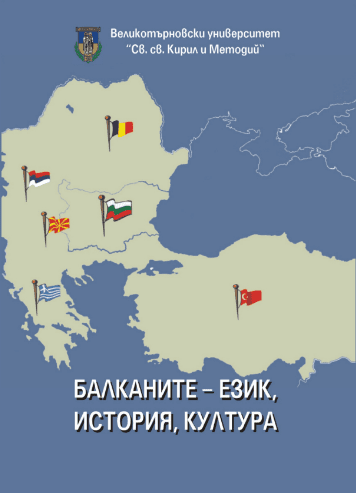Prohibition of Bektashism in Today’s Bulgarian Geography after 1826
Prohibition of Bektashism in Today’s Bulgarian Geography after 1826
Author(s): Fahri MadenSubject(s): History, Geography, Regional studies, Regional Geography, History of ideas, Modern Age, Special Historiographies:, 19th Century, The Ottoman Empire
Published by: Великотърновски университет „Св. св. Кирил и Методий”
Keywords: the Balkans; Bulgaria; Bektashism; 1826 Prohibition; Bektashi Tomb and Lodge
Summary/Abstract: Bektashism became one of the Balkans’ essential beliefs and part of their cultural richness when Hacı Bektas Vel’s ideas spread from Anatolia to the Balkans. During the Seljuk period, Sarı Saltık and Bektashi beliefs and culture, which manifested in the region, rapidly expanded after the Ottoman transition to Rumelia. Following the Ottoman conquests, Bektashism acquired large dervish lodges and numerous dervish communities in the area of today’s Bulgaria. In particular, the Bektashis undertook the spiritual training of the Janissary Corps, contributing to the process of the newly conquered places becoming a Turkish homeland. The Bektashis, whose fate was united with that of the Janissaries, faced a severe ban in 1826. Bektashism could not easily overcome the problems following this long-lasting ban. Dozens of Bektashi lodges’ properties were confiscated and closed down in the territory of today’s Bulgaria. The tomb area belonging to many Bektashi elders was left to the administration of other sects, and the Bektashis faced the danger of being assimilated and destroyed. Large buildings and rich properties (Osman Baba and Ali Baba in Haskoy, Musa Baba, Huseyin Baba, and Koc Dogan in Hazergrad (Razgrad) in the province of Silistra, Demir Baba lodge in Deliorman district of Hazergrad (Razgrad), Musa Baba in Novi Pazar (Kozluca), Horasani Ali Baba and Tay Hizir Ali Baba in Ruscuk, Ali Koc Baba in Nikopol, Hafiz Baba in Shumen, Selahaddin Baba in the banner of Vidin, Akyazili Sultan in Varna, Sari Saltik in Balchik, Mu’min Baba and Turhan Baba in Eski Zagra, Kidemli Baba in Nova Zagra, Nasuh Baba and Kizana in Eskicuma, Hizir Baba in Kyustendil (Dupnitsa), Hizir Baba and Cafer Baba in Cisr-i Mustafa Pasha the dervish lodges) were closed after the prohibition of 1826. Their assets were confiscated, and their elders and dervishes were exiled. In the second half of the 19th century, especially during the reign of Sultan Abdülaziz, the Bektashis wanted to take back and revive these monasteries. With the decrease of state pressure on the Bektashis, their activity intensified. In this paper, the prohibition of Bektashism in 1826 and its reflection on the Bektashi monasteries in today’s Bulgarian territory will be discussed in the light of first-hand sources, primarily archival records.
Journal: Балканите – език, история, култура
- Issue Year: 7/2021
- Issue No: 1
- Page Range: 233-257
- Page Count: 25
- Language: English

